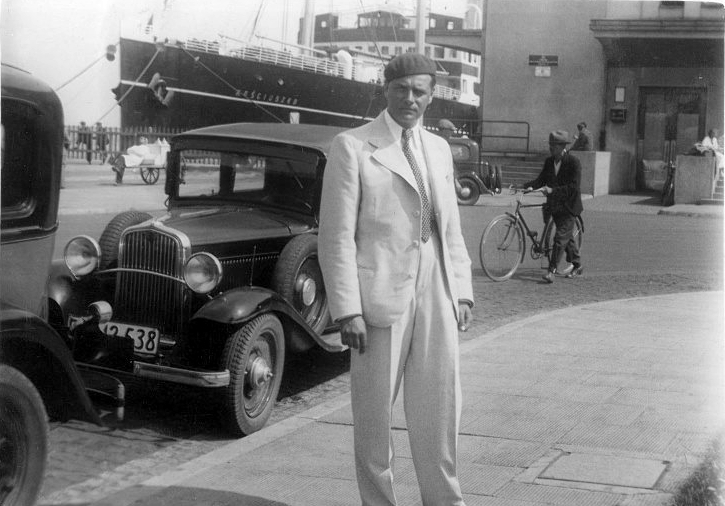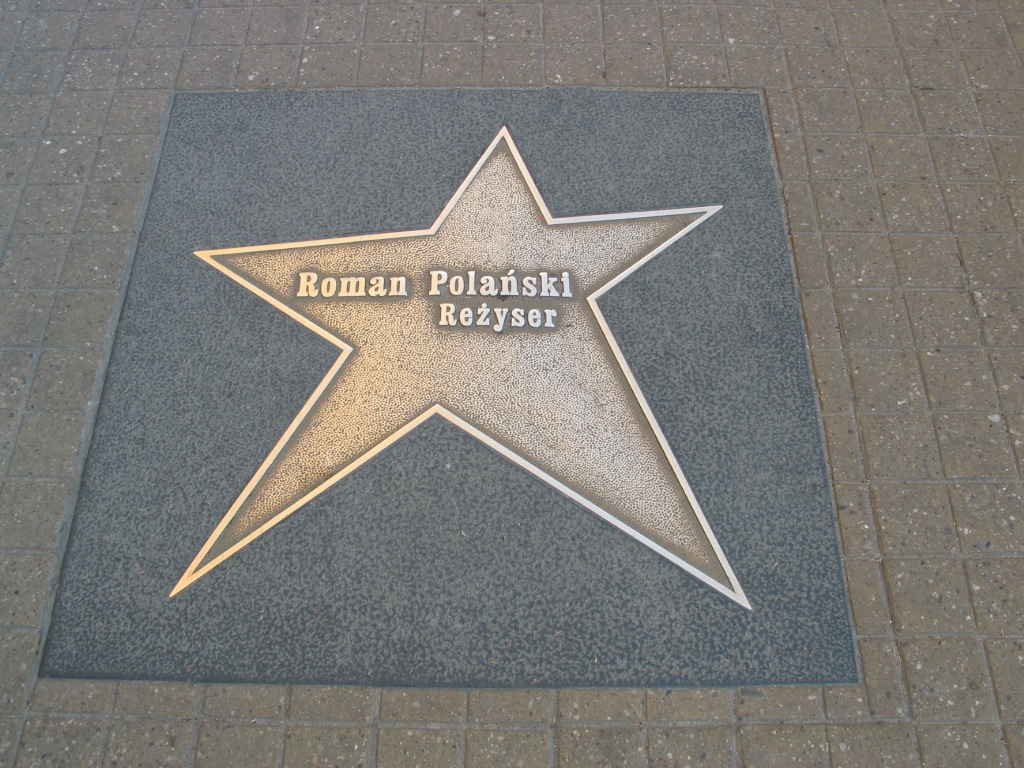|
Tadeusz Pankiewicz
Tadeusz Pankiewicz (November 21, 1908, in Sambor – November 5, 1993, buried in Kraków), was a Polish Roman Catholic pharmacist, operating in the Kraków Ghetto during the Nazi German occupation of Poland. He was recognized as "Righteous Among the Nations" by Yad Vashem on February 10, 1983, for rescuing countless Jews from the Holocaust. Pankiewicz studied at the Jagiellonian University in Kraków. In 1933, he took over the proprietorship of the Under the Eagle Pharmacy founded in 1910 by his father Jozef. The pharmacy was situated on Plac Zgody (formerly ''Mały Rynek'' square) in Kraków's Podgórze district. Its prewar clientele included both Gentile Poles and Jews. In the Kraków Ghetto Under the German Nazi occupation of Poland during World War II, Podgórze district was closed off in March 1941 as a ghetto for local area Jewry. Within the walls of the Kraków Ghetto, there were four prewar pharmacies owned by non-Jews. Pankiewicz was the only proprietor to d ... [...More Info...] [...Related Items...] OR: [Wikipedia] [Google] [Baidu] |
Sambir
Sambir ( uk, Самбір, pl, Sambor, yi, סאמבאָר, Sambor) is a city in Sambir Raion, Lviv Oblast, Ukraine. It serves as the administrative center of Sambir Raion (district) and is located close to the border with Poland. Sambir hosts the administration of Sambir urban hromada, one of the hromadas of Ukraine. Population: Location Sambir is situated on the left bank of the Dniester river. The city stands at the crossroads. It is the cultural, industrial and tourist center of modern Ukraine. The fifth largest city in Lviv Oblast. Distance to the regional center by rail for 78 miles, by road 76 km length of the city from the South-West to North-East is 10.5 km, and from North-West to South-East 4.5 km from the hotel. The area is 24 km2. The center is located at the height of 305,96 m above sea level. The city is an important road connecting Eastern and Western Europe, North and South. Through Sambor electrified railway tracks, trunk pipelines and po ... [...More Info...] [...Related Items...] OR: [Wikipedia] [Google] [Baidu] |
Eagle Pharmacy
The Eagle Pharmacy Museum is located on the southwest edge of the Bohaterów Getta Square, under number 18 (formerly Maly Rynek, then Plac Zgody) in Kraków, Poland. Since 1910, its proprietor was Jozef Pankiewicz and after him Tadeusz Pankiewicz (21 November 1908 – 5 November 1993), his son who ran it since 1933. Before World War II, it was one of the four pharmacies in the Podgórze district. Its clients were both Polish and Jewish residents of the district. A frequent customer was, e.g., "Bikkur Cholim" charity.Museum's History at the Museum's Home page In March 1941, the Germans established a ghetto in Podgórze for Kraków's Jews, Pankiewicz's pharmacy was the only one within its borders and its proprietor was the only Pole with rights to stay in it. The Germans also decreed that all signs and other ... [...More Info...] [...Related Items...] OR: [Wikipedia] [Google] [Baidu] |
Roman Polanski
Raymond Roman Thierry Polański , group=lower-alpha, name=note_a (né Liebling; 18 August 1933) is a French-Polish film director, producer, screenwriter, and actor. He is the recipient of numerous accolades, including an Academy Award, two British Academy Film Awards, nine César Awards, two Golden Globe Awards, as well as the Golden Bear and a Palme d'Or. His Polish–Jewish parents moved the family from his birthplace in Paris back to Kraków in 1937.Paul Werner, ''Polański. Biografia'', Poznań: Rebis, 2013, p. 13. Two years later, the invasion of Poland by Nazi Germany started World War II, and the family found themselves trapped in the Kraków Ghetto. After his mother and father were taken in raids, Polanski spent his formative years in foster homes, surviving the Holocaust by adopting a false identity and concealing his Jewish heritage. Polanski's first feature-length film, ''Knife in the Water'' (1962), was made in Poland and was nominated for the United States ... [...More Info...] [...Related Items...] OR: [Wikipedia] [Google] [Baidu] |
Steven Spielberg
Steven Allan Spielberg (; born December 18, 1946) is an American director, writer, and producer. A major figure of the New Hollywood era and pioneer of the modern blockbuster, he is the most commercially successful director of all time. Spielberg is the recipient of various accolades, including three Academy Awards, a Kennedy Center honor, a Cecil B. DeMille Award, and an AFI Life Achievement Award. Seven of his films been inducted into the National Film Registry by the Library of Congress. Spielberg was born in Cincinnati, Ohio, and grew up in Phoenix, Arizona. He moved to California and studied film in college. After directing several episodes for television including ''Night Gallery'' and '' Columbo'', he directed the television film ''Duel'' (1971) which gained acclaim from critics and audiences. He made his directorial film debut with ''The Sugarland Express'' (1974), and became a household name with the 1975 summer blockbuster ''Jaws''. He then directed box office succe ... [...More Info...] [...Related Items...] OR: [Wikipedia] [Google] [Baidu] |
Schindler's List
''Schindler's List'' is a 1993 American epic historical drama film directed and produced by Steven Spielberg and written by Steven Zaillian. It is based on the 1982 novel ''Schindler's Ark'' by Australian novelist Thomas Keneally. The film follows Oskar Schindler, a German industrialist who saved more than a thousand mostly Polish-Jewish refugees from the Holocaust by employing them in his factories during World War II. It stars Liam Neeson as Schindler, Ralph Fiennes as SS officer Amon Göth, and Ben Kingsley as Schindler's Jewish accountant Itzhak Stern. Ideas for a film about the ''Schindlerjuden'' (Schindler Jews) were proposed as early as 1963. Poldek Pfefferberg, one of the ''Schindlerjuden'', made it his life's mission to tell Schindler's story. Spielberg became interested when executive Sidney Sheinberg sent him a book review of ''Schindler's Ark''. Universal Pictures bought the rights to the novel, but Spielberg, unsure if he was ready to make a film about the Holoca ... [...More Info...] [...Related Items...] OR: [Wikipedia] [Google] [Baidu] |
Jewish Ghetto In Kraków
Jews ( he, יְהוּדִים, , ) or Jewish people are an ethnoreligious group and nation originating from the Israelites Israelite origins and kingdom: "The first act in the long drama of Jewish history is the age of the Israelites""The people of the Kingdom of Israel and the ethnic and religious group known as the Jewish people that descended from them have been subjected to a number of forced migrations in their history" and Hebrews of historical Israel and Judah. Jewish ethnicity, nationhood, and religion are strongly interrelated, "Historically, the religious and ethnic dimensions of Jewish identity have been closely interwoven. In fact, so closely bound are they, that the traditional Jewish lexicon hardly distinguishes between the two concepts. Jewish religious practice, by definition, was observed exclusively by the Jewish people, and notions of Jewish peoplehood, nation, and community were suffused with faith in the Jewish God, the practice of Jewish (religious) la ... [...More Info...] [...Related Items...] OR: [Wikipedia] [Google] [Baidu] |
Historical Museum Of Kraków
The Historical Museum of the City of Kraków ( pl, Muzeum Historyczne Miasta Krakowa) in Kraków, Lesser Poland, was granted the status of an independent institution in 1945. Originally, it was a branch of the Old Records Office of Kraków, in operation from 1899. The museum holdings include sixteenth through twentieth century city maps, paintings, prints, photographs, guild objects and works by Kraków artists and artisans, as well as portraits of nobility from the sixteenth to the twentieth century; fourteenth through twentieth century weapons; a collection of sixteenth through twentieth century clocks; famous Kraków nativity scenes ('' szopka''); artifacts related to theatre; Judaica; items commemorative of the Polish uprisings of the nineteenth century and of World War I and II. The museum houses a permanent exhibit of the History and Culture of Kraków, a collection of the militaria (projectiles, firearms, defense and sharp weapons), clocks and watches. The Town Hall Tower ... [...More Info...] [...Related Items...] OR: [Wikipedia] [Google] [Baidu] |
Rakowicki Cemetery
Rakowicki Cemetery (English: ; pl, Cmentarz Rakowicki) is a historic necropolis and a cultural heritage monument located on 26 Rakowicka Street in the centre of Kraków, Poland. It lies within the Administrative District No. 1 ''Stare Miasto'' meaning "Old Town" – distinct from the Kraków Old Town situated further south. Founded at the beginning of the 19th century when the region was part of Austrian Galicia, the cemetery was expanded several times, and at present covers an area of about 42 hectares. Many notable Cracovians, among them the parents of Pope John Paul II, are buried here. Gazeta Krakow.pl, October 29, 2008, A multilingual brochure available for the visitors, calle"Zwiedzamy Cmentarz Rakowicki" (A visit to the Rakowicki Cemetery)with a map describing a two-hour walk, is published by Zarząd Cmentarzy Komunalnych w Krakowie. History The Rakowicki Cemetery was set up in 1800–1802 at an estate in Prądnik Czerwony village, originally on an area of on ... [...More Info...] [...Related Items...] OR: [Wikipedia] [Google] [Baidu] |
Gestapo
The (), abbreviated Gestapo (; ), was the official secret police of Nazi Germany and in German-occupied Europe. The force was created by Hermann Göring in 1933 by combining the various political police agencies of Prussia into one organisation. On 20 April 1934, oversight of the Gestapo passed to the head of the ''Schutzstaffel'' (SS), Heinrich Himmler, who was also appointed Chief of German Police by Hitler in 1936. Instead of being exclusively a Prussian state agency, the Gestapo became a national one as a sub-office of the (SiPo; Security Police). From 27 September 1939, it was administered by the Reich Security Main Office (RSHA). It became known as (Dept) 4 of the RSHA and was considered a sister organisation to the (SD; Security Service). During World War II, the Gestapo played a key role in the Holocaust. After the war ended, the Gestapo was declared a criminal organisation by the International Military Tribunal (IMT) at the Nuremberg trials. History After Adol ... [...More Info...] [...Related Items...] OR: [Wikipedia] [Google] [Baidu] |
Gentile
Gentile () is a word that usually means "someone who is not a Jew". Other groups that claim Israelite heritage, notably Mormons, sometimes use the term ''gentile'' to describe outsiders. More rarely, the term is generally used as a synonym for ''heathen'' or ''pagan''. In some translations of the Quran, ''gentile'' is used to translate an Arabic word that refers to non-Jews and/or people not versed in or not able to read scripture. The English word ''gentile'' derives from the Latin word , meaning "of or belonging to the same people or nation" (). Archaic and specialist uses of the word ''gentile'' in English (particularly in linguistics) still carry this meaning of "relating to a people or nation." The development of the word to principally mean "non-Jew" in English is entwined with the history of Bible translations from Hebrew and Greek into Latin and English. Its meaning has also been shaped by Rabbinical Jewish thought and Christian theology which, from the 1st century ... [...More Info...] [...Related Items...] OR: [Wikipedia] [Google] [Baidu] |
Ghettos In Nazi-occupied Europe
Beginning with the invasion of Poland during World War II, the Nazi regime set up ghettos across German-occupied Eastern Europe in order to segregate and confine Jews, and sometimes Romani people, into small sections of towns and cities furthering their exploitation. In German documents, and signage at ghetto entrances, the Nazis usually referred to them as ''Jüdischer Wohnbezirk'' or ''Wohngebiet der Juden'', both of which translate as the Jewish Quarter. There were several distinct types including ''open ghettos'', ''closed ghettos'', ''work'', ''transit'', and ''destruction ghettos'', as defined by the Holocaust historians. In a number of cases, they were the place of Jewish underground resistance against the German occupation, known collectively as the ghetto uprisings. Background and establishment of the ghettos The first anti-Jewish measures were enacted in Germany with the onset of Nazism; these measures did not include ghettoizing German Jews: such plans were rejecte ... [...More Info...] [...Related Items...] OR: [Wikipedia] [Google] [Baidu] |
World War II
World War II or the Second World War, often abbreviated as WWII or WW2, was a world war that lasted from 1939 to 1945. It involved the vast majority of the world's countries—including all of the great powers—forming two opposing military alliances: the Allies and the Axis powers. World War II was a total war that directly involved more than 100 million personnel from more than 30 countries. The major participants in the war threw their entire economic, industrial, and scientific capabilities behind the war effort, blurring the distinction between civilian and military resources. Aircraft played a major role in the conflict, enabling the strategic bombing of population centres and deploying the only two nuclear weapons ever used in war. World War II was by far the deadliest conflict in human history; it resulted in 70 to 85 million fatalities, mostly among civilians. Tens of millions died due to genocides (including the Holocaust), starvation, ma ... [...More Info...] [...Related Items...] OR: [Wikipedia] [Google] [Baidu] |





.jpg)


